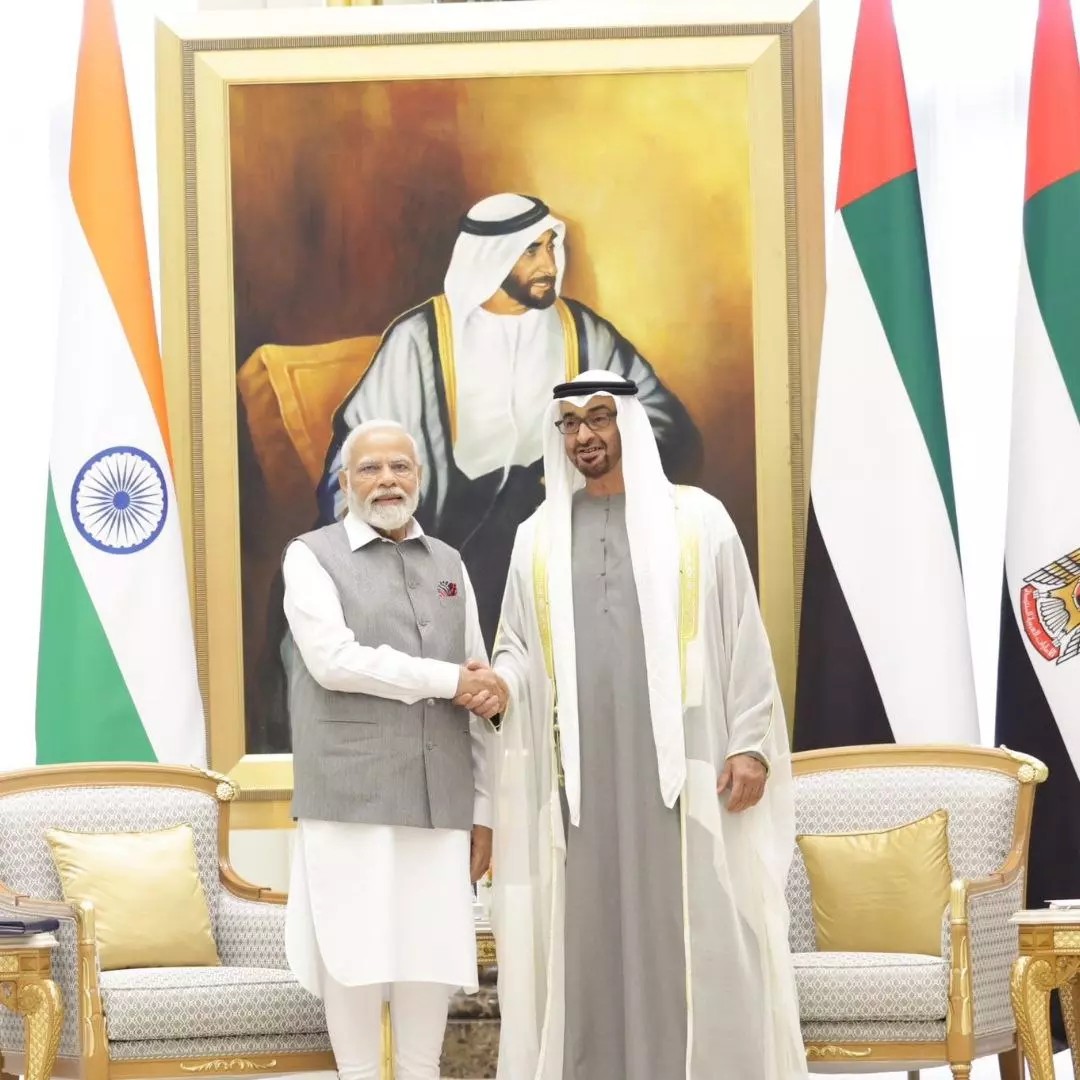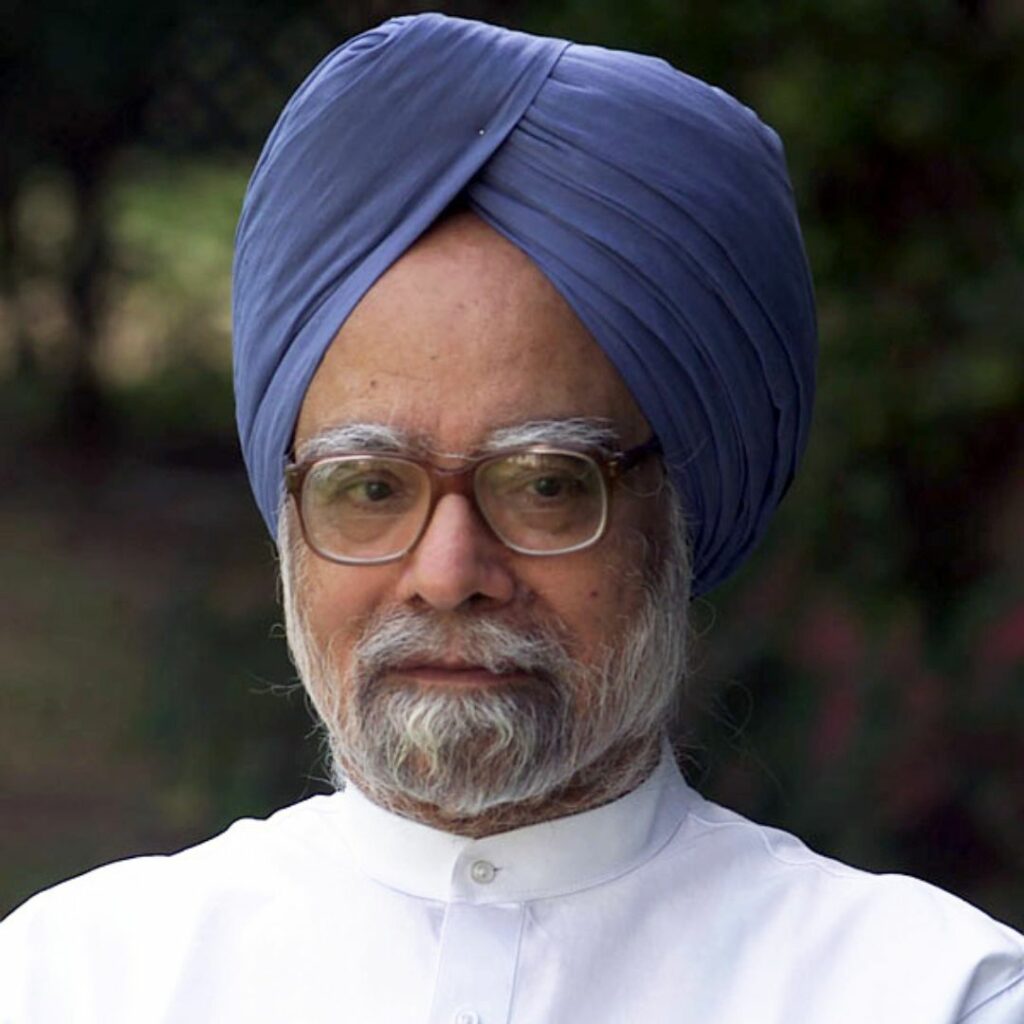Prime Minister Narendra Modi received a grand ceremonial welcome at the esteemed Qasr-Al-Watan, the presidential palace, where he was greeted by a heartfelt embrace from the UAE President.
Following his successful two-day visit to Paris, where he joined French President Emmanuel Macron as the Guest of Honour for the Bastille Day parade and solidified several bilateral agreements, PM Modi arrived in the UAE capital to further strengthen ties between the two nations.
After comprehensive discussions with UAE President Sheikh Mohamed bin Zayed Al Nahyan, India and the UAE reached an agreement to initiate trade settlements in their respective currencies. Additionally, they decided to integrate the Indian Unified Payments Interface with the Gulf country’s Instant Payment Platform (IPP).
Addressing the media after the meeting, PM Narendra Modi highlighted the significant progress in India-UAE trade, noting a remarkable 20% increase since the signing of the Comprehensive Economic Partnership Agreement last year. He emphasized that the trade settlement agreement, which allows transactions in the currencies of both nations, exemplifies the robust economic cooperation and mutual trust shared between India and the UAE.
Strengthening Economic Ties
The Reserve Bank of India (RBI) and the Central Bank of UAE have taken a significant step towards bolstering economic ties between the two countries. On Saturday, they agreed to allow exporters and importers from both sides to invoice and transact in their respective domestic currencies, the Indian rupee and the Emirati dirham. Additionally, they are exploring the development of a messaging system as an alternative to SWIFT (Society for Worldwide Interbank Financial Telecommunication), the globally used money remittance system.
The memorandum of understanding (MoU) was signed by RBI Governor Shaktikanta Das and his UAE counterpart Khaled Mohamed Balama during Prime Minister Narendra Modi’s visit to Abu Dhabi. The agreement aims to shield traders from exchange rate fluctuations while creating opportunities for Emirati companies to invest in India, considering the UAE’s trade surplus with India.
This is a very important aspect of India-UAE cooperation. It paves the way for enhanced economic collaboration and will make international financial interactions simpler. https://t.co/nuoQbUIFq6
— Narendra Modi (@narendramodi) July 15, 2023
Payment & Messaging System
The UAE is one of India’s top three trading partners and a significant destination for Indian workers and tourists. PM Modi hailed the MoUs as crucial elements of cooperation between the two nations, with the agreement with the UAE taking the initiative a step further. The creation of the Local Currency Settlement System (LCSS) is expected to foster the development of an INR-AED foreign exchange market, promoting investments and remittances between the two countries. By conducting transactions in local currencies, it is anticipated that transaction costs and settlement time will be optimized, benefiting remittances from the Indian community in the UAE. The agreement encompasses all current account transactions and permitted capital account transactions.
The RBI further added that this arrangement would also promote investments and remittances between the two countries while avoiding the risk of exchange rate fluctuations. Trading in local currencies expedites settlement processes, enhances stability, and facilitates transparency in two-way trade. Ajay Sahai, DG & CEO at the Federation of Indian Export Organisations, described the move as an added advantage for capitalizing on opportunities offered by the India-UAE Comprehensive Economic Cooperation Agreement, as per a report in The Times Of India.
The second MoU focuses on ‘Payments and Messaging Systems’ and includes the integration of the Unified Payments Interface (UPI) of India with the Instant Payment Platform (IPP) of the UAE. The agreement also involves linking the respective payment card switches, namely RuPay switch and UAESWITCH.
Facilitating Transaction Settlement
RBI Governor Shaktikanta Das explained that the RBI has developed the SFMS (Structured Financial Messaging System) messaging network, while the UAE has its own system. The objective is to facilitate transaction settlement between banks using these messaging systems, eliminating the need for SWIFT. This lays the foundation for an alternative to SWIFT, as the two central banks are exploring the possibility of linking their payments messaging systems, such as the SFMS of India with the UAE’s messaging system.
This move comes as various governments and central banks, including Russia, seek alternative switching arrangements in response to sanctions. The UPI-IPP linkage will enable users in both countries to conduct fast, convenient, safe, and cost-effective cross-border fund transfers. Moreover, connecting the respective card switches will facilitate the mutual acceptance of domestic cards and the processing of card transaction.
Also Read: Twitter Addresses Spam Issue In Direct Messages, Introduces New Default Setting
https://thelogicalindian.com/h-upload/2023/07/17/500x300_232584-photo2023-07-1713-57-59.webp
Trending
2023-07-17 08:31:12.0
India & UAE Signs Rupee- Dirham Trade Pact











